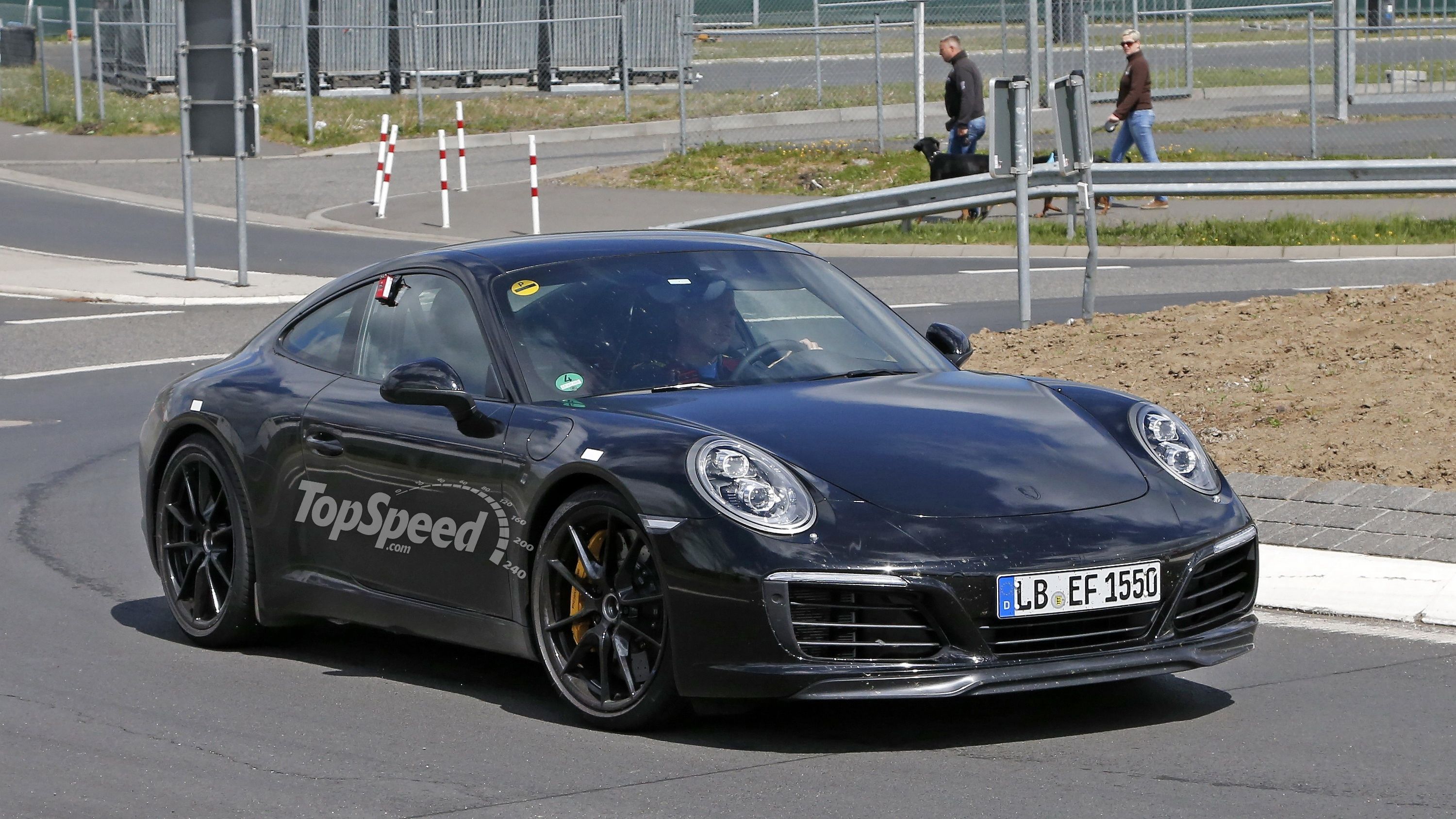Not even iconic sports cars like the Porsche 911->ke282 are safe from the relentless march of hybrid->ke147 technology. New reports suggest that the next-generation 911, internally designated 992 and slated to debut by the end of the decade, will include a plug-in hybrid->ke4486 variant. The hybrid system will supplement a new range of turbocharged flat-sixes that will debut in the 991 911’s mid-cycle refresh.
According to Car and Driver, which spoke to a source familiar with the project, the 911 plug-in hybrid will use the latest in Porsche->ke1 hybrid technology, currently in development for the next Panamera.->ke1840 Because European emissions tests are so sympathetic to hybrids, it will also crucially allow Porsche to improve both emissions and fuel consumption levels.
However, because this is Porsche we’re talking about, the new system will also make the 911 faster. Possibly, a lot faster. There’s also talk of a 911 Turbo->ke571 hybrid with over 700 horsepower. “This hybrid technology has two reasons,” Porsche’s Matthias Muller recently told Car Advice. “One is CO2, but another reason for us for this technology is sportiness. As we have proved in the 918 Spyder… it can work.”
Continue reading to learn more about the Porsche 992.
Why it matters
What isn’t known is exactly what kind of layout the hybrid 911 will have. Obviously, the rear engine layout will be retained, and actually presents lots of possibilities. One solution would be to have the internal combustion engine drive the rear wheels and let an electric motor or motors power the fronts. This would not only make it effectively all-wheel-drive, but would also improve weight distribution between front a rear, especially if the battery pack were also positioned towards the front.
The new range of turbocharged flat-fours powering the next Cayman and Boxster are also a possibility and could help liberate a bit more space in the engine compartment for hybrid components if needed.
In hindsight, Porsche’s 918 Spyder Hybrid->ke3629 wasn’t really a car. It was actually Porsche’s way of preparing the world for what was to come. Porsche and the rest of the auto industry saw the writing on the wall years ago and knew hybrids would be essential to meeting increasingly stringent fleet-wide emissions standards. The tricky part would be building hybrids enthusiasts wanted.
Porsche proved it could use hybrid technology to not only make a car efficient, but also brutally fast. Now, the technology is beginning to trickle down to the rest of the range. We’re totally fine with that, just as long as we always have the option to buy a normally aspirated GT3.->ke617
2016 Porsche 911
Read our speculative review here.

